AI-Driven Storytelling: The Tools and their How’s
AI-Assisted Narrative Creation
If you love narratives but at one point get stuck or don’t know how to proceed with the bigger picture—you are not alone. When it comes to writing, even if you are a rookie or an experienced writer, a creative blockade is inevitable. AI-driven storytelling is making its way—a novelty that is turning around the concept of the creation of stories.
But if you’re into the marketing side of writing, i.e. content creation tools, you can find the latest, best tools for that here.
So, What is AI-Driven Storytelling?
As a concept, generative AI tools for story writing are simply advanced intelligent software solutions that assist in plot development, character creation, and story writing in general. These tools go through many pieces of literature to understand how stories are worded, and they then use this knowledge to stir words together, making captions that are original, well-coordinated, and actually meaningful. Therefore having AI-driven storytelling means finding a writing partner, always willing to suggest the next idea when creativity runs dry.
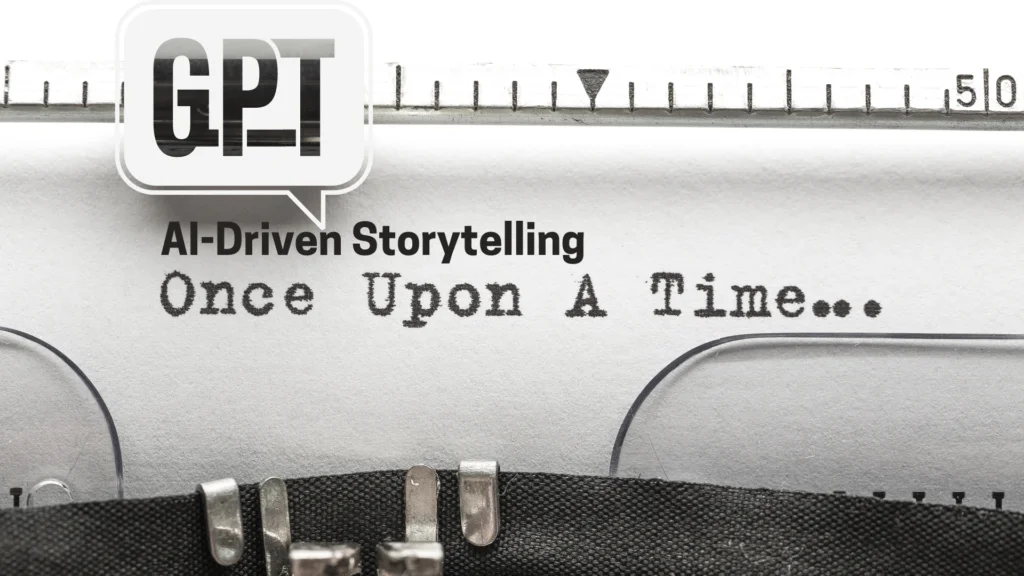
How Book Writing AI Tools Work?
Many story-writing AI tools are based on GPT (Generative Pre-trained Transformer), meaning they were trained on tons of different texts. They can find out how language works, how plots are constructed, and how characters evolve by examining all types of literature, from Shakespeare to contemporary short stories. When you provide AI with a stimulus: a sentence or an idea – it creates a text based on the taught narratives.
Why Bother Utilizing AI-Driven Storytelling?
1. It Boosts Your Creativity
There is nothing quite like AI story-writing tools in really getting your creativity off the ground. These tools initiate motivation when you find yourself sitting, facing a blank screen with no idea how to start. They offer ideas for the directed and unexpected course of the plot, and the personality evolution, and conversation, which the author himself did not come up with.
2. How to Quit the Writer’s Block
I’m sure all of us have seen ourselves stuck at the keyboard, staring at the blank page and… nothing. If that’s the case, it only goes to show that AI-driven storytelling tools are ideal for breaking free from it. They create ideas and text based on what you have, assisting you to continue generating content when your mind is sluggish.
3. It Saves You Time
Creating a novel or a short story is very difficult, let alone if you strive for perfection in every sentence. There is software that can help you write a whole book if you’ve already got an outline and the program will provide you with a first draft which you can then work on. This way, you can think about the general plan on top of the finer aspects of the process to handle.
4. Plot Generation Made Easy
Many of these tools are really helpful in developing the plot of the stories. From mystery to romance novels, AI is able to come up with credible plots that readers are guaranteed to love. It proposes story arcs, resolutions, and character development that put a flash to your story and make it more interesting.
The Best Book Writing AI Software
Curious to know which AI in creative writing tools are suitable for writing stories? Here’s a quick rundown of some top picks:
1. Sudowrite: Fiction writers rave over Sudowrite. This intended AI tool is special for creative writing as it includes options like brainstorming, characters, and plots. It is particularly useful in creating direct and explicit descriptions as well as dialogue that does not sound contrived. Overall, if you need a great book-writing AI software, this is a very good choice for writing.
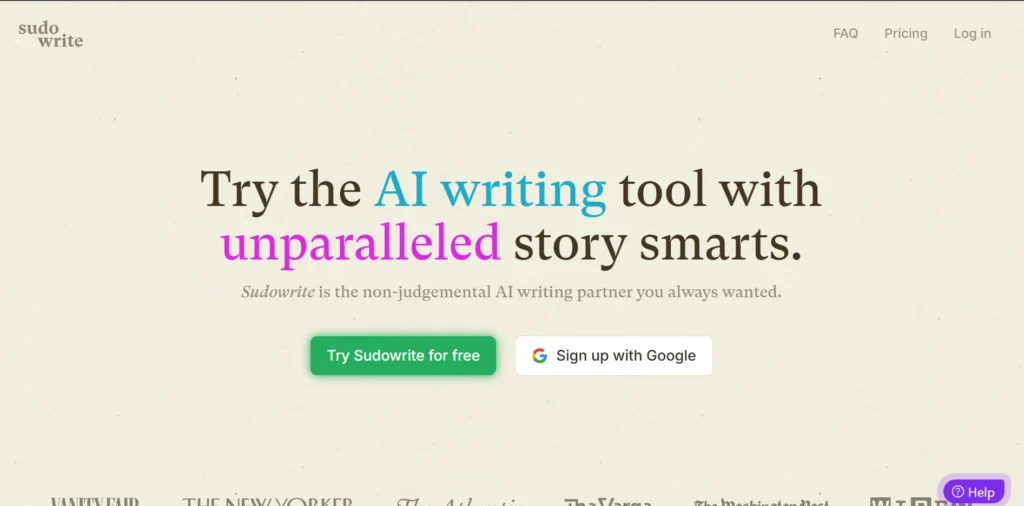
2. AI Dungeon: If you like interactive storytelling or game writing, you will probably love what AI Dungeon is all about. It allows you to write interactive stories in the fashion of ‘choose your own adventure’ where the AI gives different outcomes depending on the selection made by the user. It is an entertaining method of experimenting with plot and character choices which is why it is one of the best AI story generators.
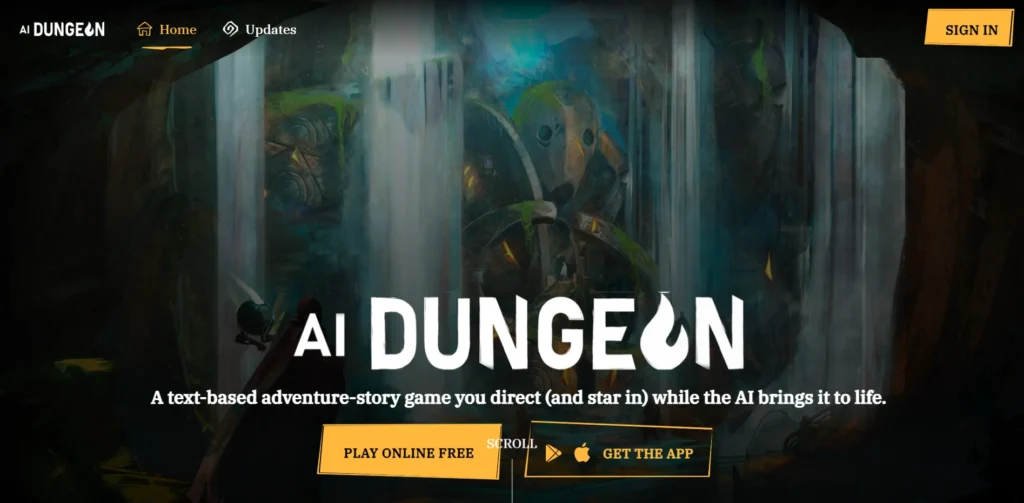
3. Plot Generator: The Plot Generator is not nearly as detailed or sophisticated, but it does the job of providing users with plot ideas. All you need to do is enter some fundamentals such as the genre of the story, the name of the characters, and the main events in the story, and the tool will generate a plot for your particular story. It is best used when you are stuck in the middle of writing and allows for plot creation in a snap.
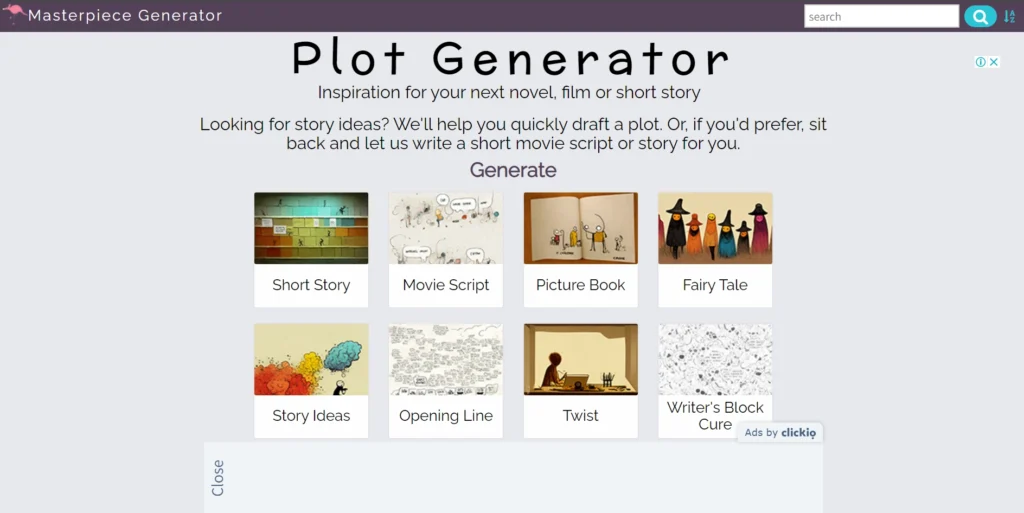
4. Grammarly: Well, Grammarly is not only for story writing, but any writer must have it in their arsenal. It proofreads your writing by providing tips for better readability, language, and interest so the AI-generated stories you write are refined. It is also a useful tool for AI book editing.
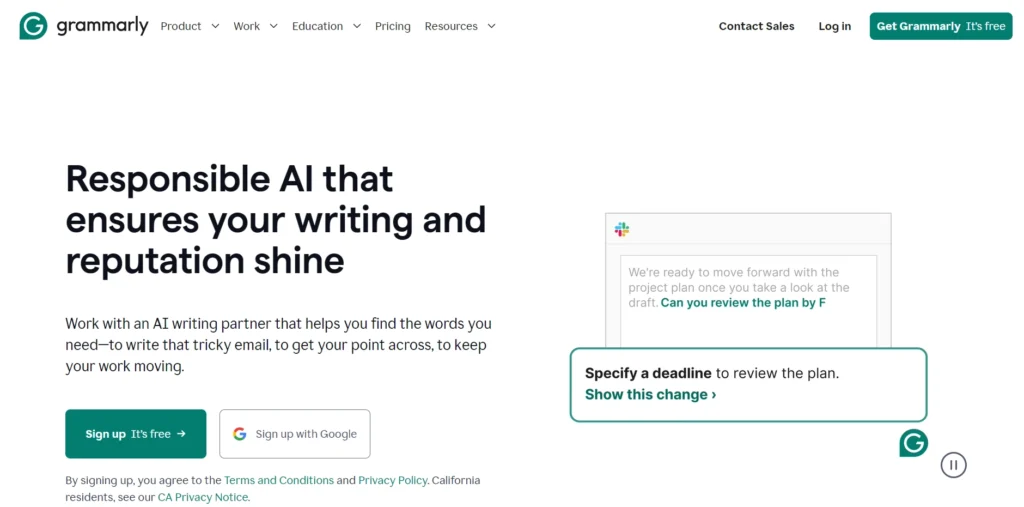
How To Write With AI-driven Storytelling And Still Retain Your Authenticity
Integrating AI in creative writing doesn’t mean that you will be shifting your creative writing process to a robot. These tools should be visualized as co-authors in the creative process of creating content for your website. Here’s how you can make the most of them:
Start Up with a Cue
For instance, you can begin by providing the AI with a simple command or at least an idea of what you would like to write. The brief plot summary could be any of the following ranging from a sentence to a paragraph below the emphasized text. It will then continue the text from there which should offer a dependable foundation and make for a good AI text continuer.
Tweak and refine
So once you get your hands on some text – it is time to make them glow. However, like any creative tool, we can still improve AI. You are going to have to change the language, the tone, and the details just enough to make the story go down smoothly with you. This is where storyline AI complements humans’ imagination and creativity.
Explore Different Paths
AI thus presents you with the ability to consider many outcomes, making the use of the tool very useful in fictional storytelling. In case you are unsure of any of the facets of the plot, you can always request the AI to show you more options on what can happen and then select the one you prefer. StoryAI tools do well with this kind of thinking.
Collaborate with the AI
You can conceive of AI as a writing collaborator. Treat its ideas as a starting point for creating your own development plan. The AI and your imagination generate a unique story completely influenced by you. The aim is not to overpower your identity with the AI book writing tools that you have at your disposal.
AI-Driven Storytelling Examples
1. Short Stories
It is quickly becoming the norm to use AI to help write a book as in short stories, especially sci-fi and fantasy. It comes as no surprise that many of these genres are well-suited for AI, as many of them entail future-related themes. They bring a technological edge that you can balance with the human interest that you need for your story.
2. Interactive Fiction
Another area that AI seems to be excelling in is the creation of what is commonly known as interactive fiction; that is, actual stories in which the reader gets to decide how the plot is going to unfold. By adopting AI tools like AI Dungeon, users are creating enjoyable experiences that blend stories with games.
3. Writing Novels
It may sound outlandish to write an entire novel with the help of AI and AI-driven storytelling, but it has already been implemented. There’s an even more populous class of writers who employ AI for book writing assistance to first write full-length chapters while they tweak it afterward. It assists in aspects such as pacing, plot development, and even dialogue; it just lessens the amount of pressure you feel while writing. Self-publishing tools for AI writing are changing the face of literature by creating new stories.
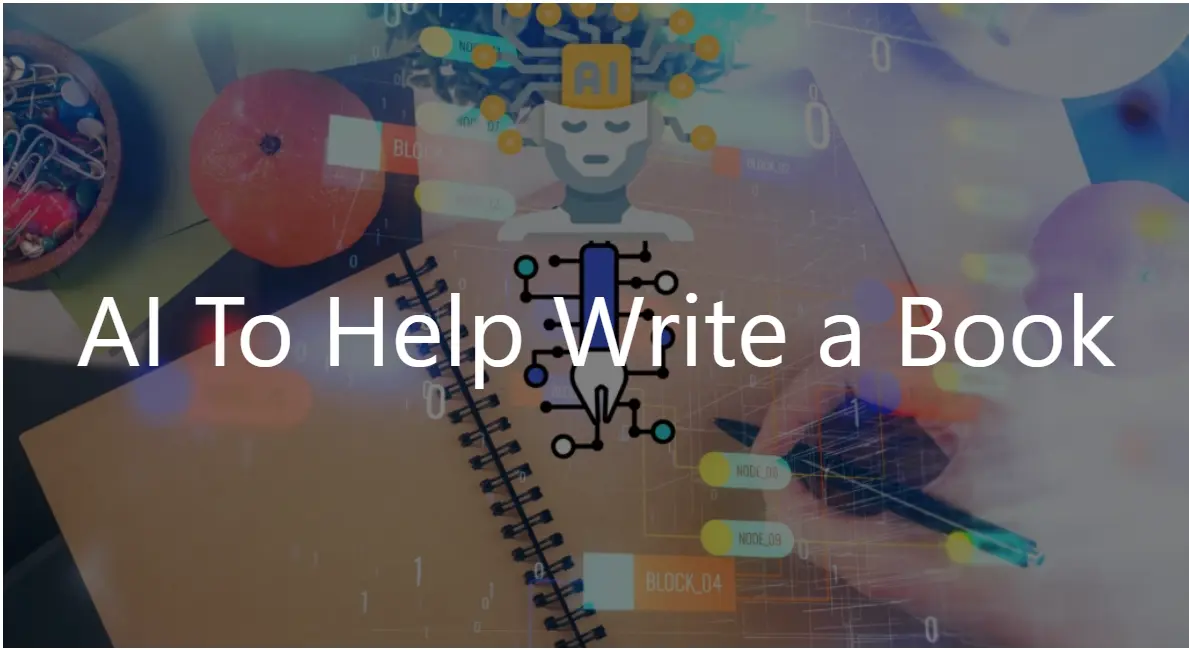
AI To Help Write a Book
Future of AI-Driven Storytelling
It is clear that with further development of AI technology, its use and functions in forms of storytelling will expand causing more and more influence in book writing assistance. Here’s what we might see in the future:
1. Personalized Stories
Think about a world in which robots write articles unique to your preference. Whether you’re a fan of thriller, romance or fantasy, with AI it would be possible to design the plots and characters to your taste.
2. AI as a Co-Author
In the future, AI might not just be a ‘tool’—it is likely to become a ‘co-author’.The proposal suggested that writers work with AI as peers, intertwining their imagination with AI’s capability to analyze and produce text. It could mean possible creation of great stories that are uniquely different and also true to the human spirit.
3. Ethical Questions in AI-powered Storytelling
Among the things we have to consider as AI is continuously woven deeper into the creative work, there are numerous crucial questions. This raises the question: Who owns AI-generated text, and who gets credit for an AI-generated story? How do I avoid copying work done by other writers? But what does it then suggest about the future of creative professions? We must consider these issues as we proceed.
Concluding AI-based Story Development
It’s evident that generative AI-driven storytelling is not mere fancy gimmicks – but beneficial assets to writers of all crafts. Therefore, whether you want to reignite your imagination, overcome writers’ block or try out new ideas for a story, using AI might be pretty useful. Why not give it a shot? Indeed, having the necessary artificial intelligence tools at your disposal can help you write the most engaging stories out there.